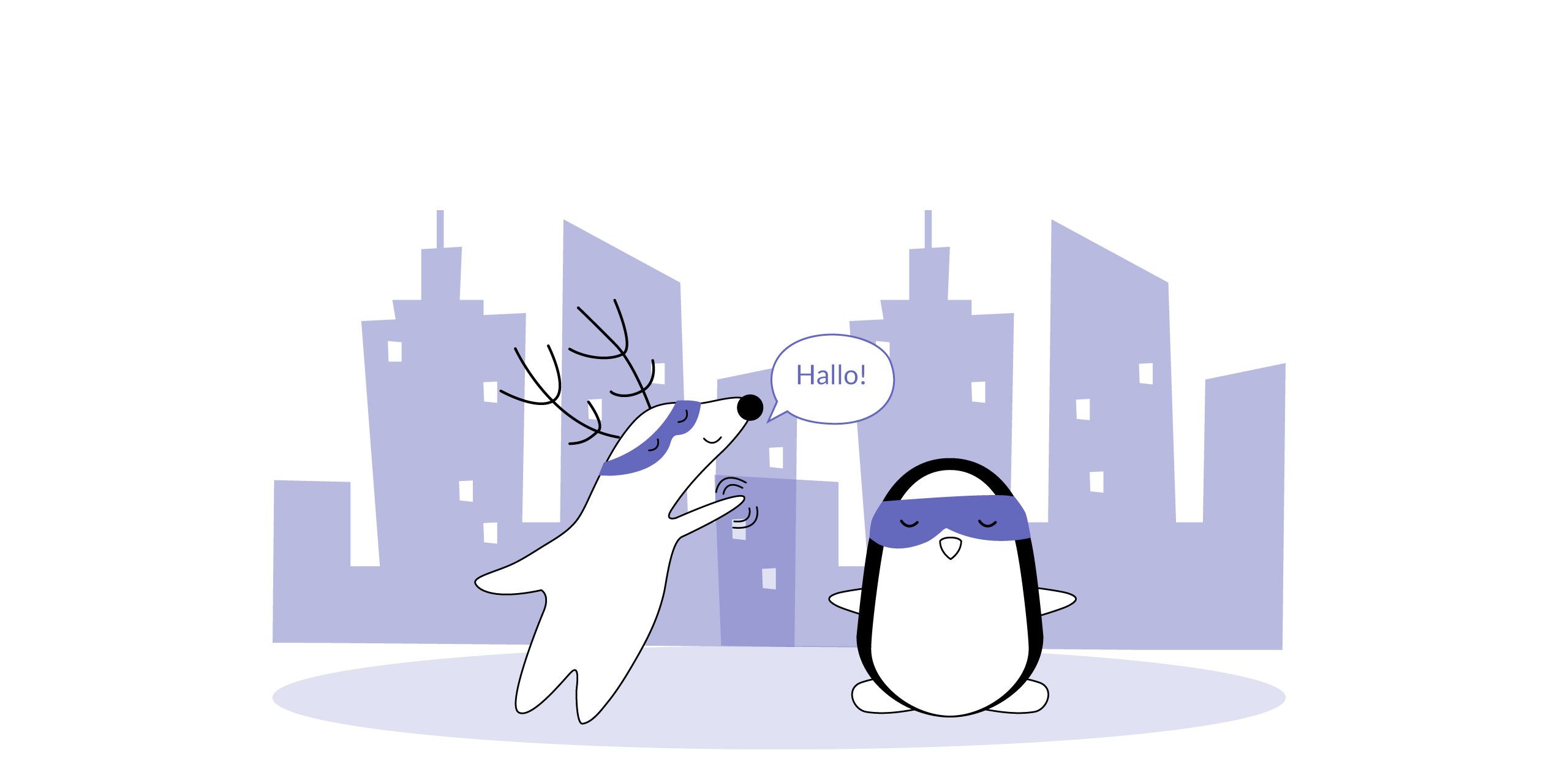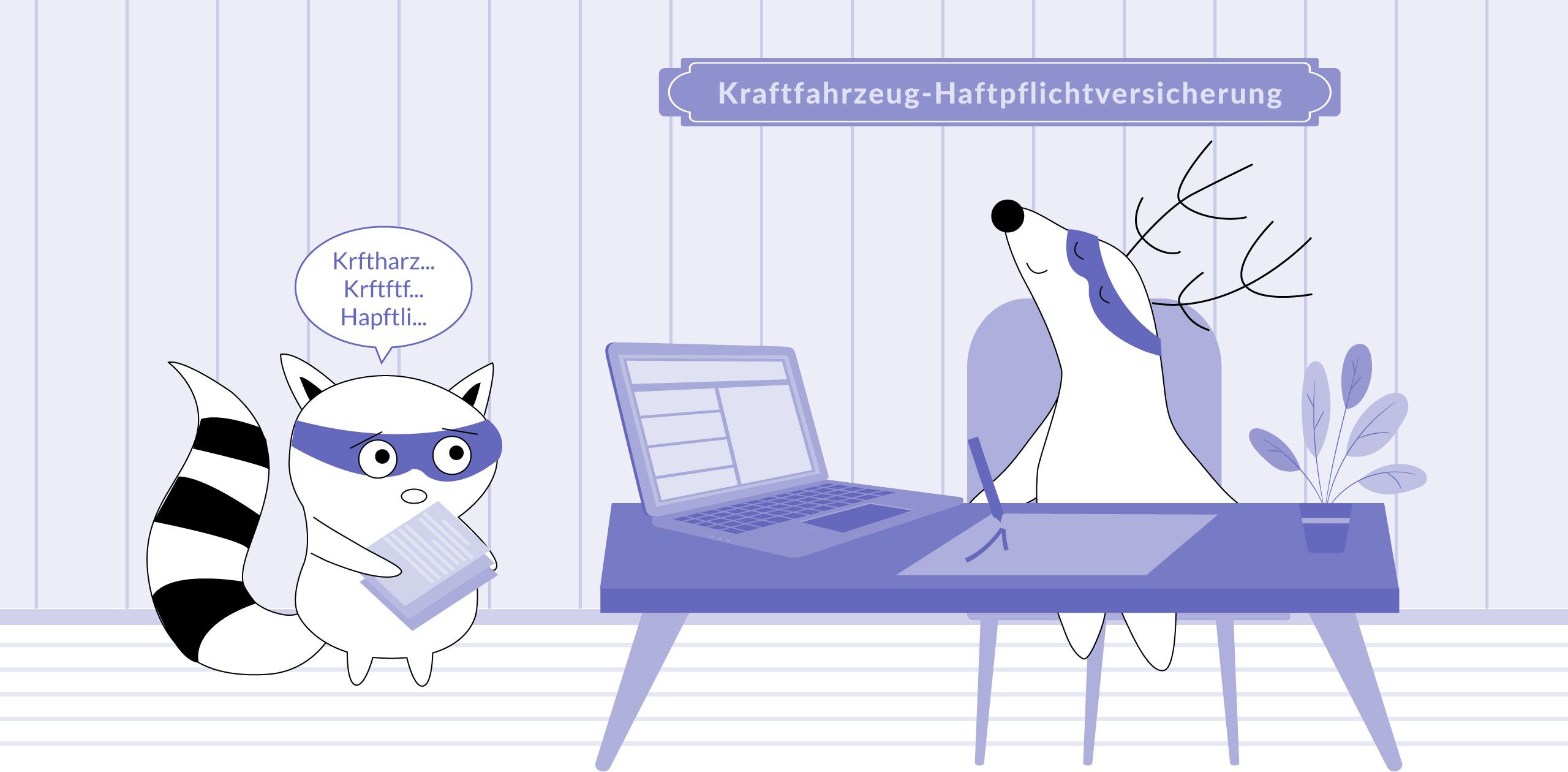
The German language is known for its complex and difficult to pronounce words. But what some people may not know is that these long, complicated words that exist in the German language can often be efficient because they can take the place of multiple words in a sentence.
These words add an air of sophistication and complexity to your language skills, so be sure to give them a try! In this article, we will explore 10 of the longest German words and their meanings. We will also provide pronunciation tips so that you can correctly say these words yourself. Now, read on, learn the longest words in German and have some fun with them.
But First.. Why Is German Full of So Many Compound Words?
German is full of compound words because of the language’s complex grammar system. In German, it is very important to use the correct word order when forming a sentence. This often leads to the use of many words which can make sentences messy.
Compound words can be very useful in that case, as they allow you to express yourself more clearly and concisely, which makes it easier to form sentences. They also fulfill the Germans need to be precise when expressing something.
This leads to a creation of numerous ferociously long words that can explain an ultra-specific concept such as “regulation requiring a prescription for an anesthetic” (Betäubungsmittelverschreibungsverordnung).
German Compound Words Are Not That Tricky, Though
While learning all the long German words can seem challenging for the very beginners, it’s actually not that difficult.
In general, German compound words are made up of two or more words that are put together to create a new word. The meaning of the original words stays though: you can usually guess the meaning of a compound word by deciphering the meanings of its parts.
We have already discussed that in a previous article. For example, the German word for refrigerator – “der Kühlschrank” – is constructed out of two words: Kühl (cool) and schrank (a closet). When you combine these two together, you get a “cold closet.”
You Don’t Have to Use Them Often
Of course, the longer the word, the more problems you might encounter when trying to learn it. However, when it comes to really long words, you won’t actually use them a lot.
German speakers don’t use the longest compound words in daily spoken or written German. They are often used in specific situations, and are part of medical, bureaucratic, or juridical language. Nevertheless, learning them can be a fun memorization game, and who knows – maybe you’ll work in Germany and need to know them
With that said, let’s take a look at the longest German words – and have some fun trying to decipher them.
1. Kraftfahrzeug-Haftpflichtversicherung
Kraftfahrzeug-Haftpflichtversicherung is a pretty long German word – not the longest, though – that consists of 37 letters. It’s a mouthful, we know.
The word describes a motor vehicle liability insurance which German law requires car owners to have. It’s basically car insurance.
Pronunciation: krahft-fow-tsoy-eh-haft-pshift-fear-oong
Native
Translation
Kraftfahrzeug-Haftpflichtversicherung
Motor vehicle liability insurance
2. Donaudampfschiffahrtsgesellschaftskapitän
This 41-letter word describes the captain of a Danube steamship company captain. As you can see, this word is made up of several smaller words that describe different parts of the title.
Pronunciation: doh-nowd-ahmfp-shiff-ahrts-gheh-sell-schaft-skah-pit-en
Native
Translation
Donaudampfschiffahrtsgesellschaftskapitän
Danube steamship company captain
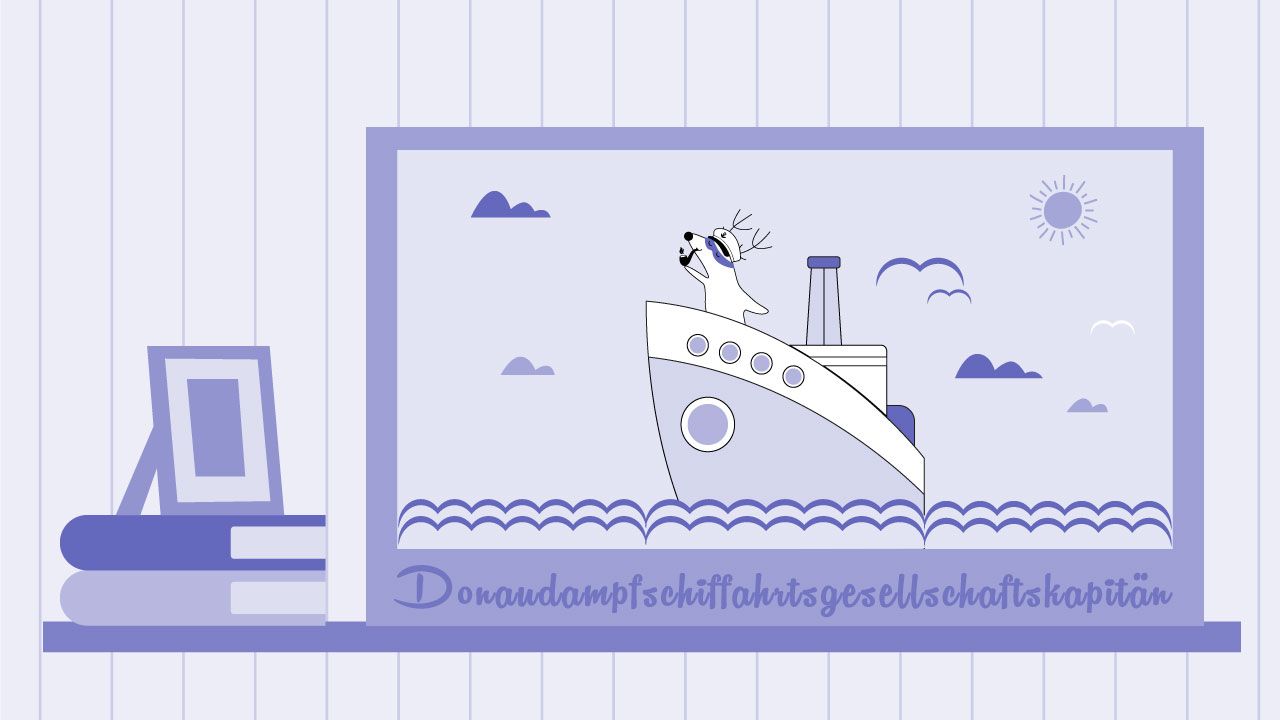
3. Rechtsschutzversicherungsgesellschaften
This 39-letter word describes insurance companies that offer legal protection insurance. In other words, these are the companies that you would go to if you need help with legal matters and need representation in court.
Pronunciation: raycht-shoots-fear-oong-zheh-sell-schaften
Native
Translation
Rechtsschutzversicherungsgesellschaften
Legal insurance companies
4. Lebensabschnittpartner
This 22-letter word describes a life partner, or someone with whom you share a significant portion of your life. This could be a spouse, a romantic partner, or even a close friend. It’s literally translated as “the person I am with today.”
Pronunciation: lay-bens-ahp-shnitt-part-ner
Native
Translation
Lebensabschnittpartner
Life partner

5. Nahrungsmittelunverträglichkeit
This long German word (31 letters) describes food allergies. It’s made up of two other long words: Nahrungsmittel (Food) and Unverträglichkeit (Intolerance). While it is pretty long, you should definitely learn it if you have nut allergy or lactose intolerance.
Pronunciation: nah-roongs-mitt-el-oon-fairt-greh-kite
Native
Translation
Nahrungsmittelunverträglichkeit
Food intolerance
6. Streichholzschächtelchen
This 24-letter word is actually a diminutive form of the word Streichholzschachtel, which means “matchbox.” In this form, it’s mostly used as a tongue twister for foreigners (and sometimes Germans), because it’s particularly challenging to pronounce.
Pronunciation: shtrah-eech-hohlts-eh-ketsh-ell-chen
Native
Translation
Streichholzschächtelchen
Matchbox
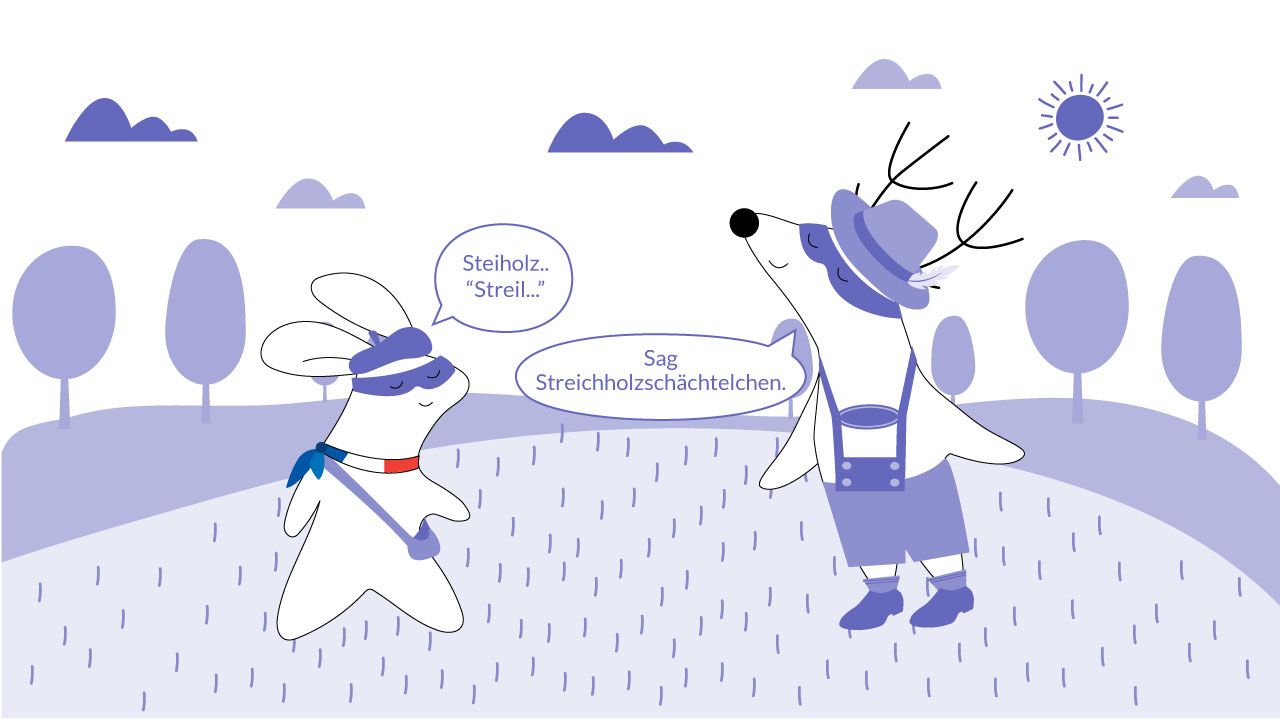
7. Arbeiterunfallverischerungsgesetz
This 33-letter word describes the German law that regulates worker’s accident insurance. In other words, it’s the legal framework that governs how workers who have been injured on the job are compensated. In English, you might know this as “Worker’s Compensation.”
Pronunciation: ar-bay-ter-oon-fall-fair-shoots-gheh-tsets
Native
Translation
Arbeiterunfallverischerungsgesetz
Workers' Compensation Act
8. Freundschaftsbeziehungen
This 24-letter word literally translates to “demonstrations of friendship”, and talks about the relationships between friends. While it might not be the longest German word, it’s still pretty challenging to pronounce, because of the way the different syllables are strung together.
Pronunciation: fraynd-shafts-bay-tsay-khungen
Native
Translation
Freundschaftsbeziehungen
Demonstrations of friendship
9. Bezirksschornsteinfegermeister
This 30-letter word describes the district master chimney sweep. In other words, it’s the person who is responsible for ensuring that all the chimneys in a certain area are clean and safe for use. You might actually use it someday – all German residences are required by law to get a yearly visit from this person.
Pronunciation: bay-tsirkt-shorn-shtain-fey-ger-mayst-er
Native
Translation
Bezirksschornsteinfegermeister
Master District Chimney Sweep
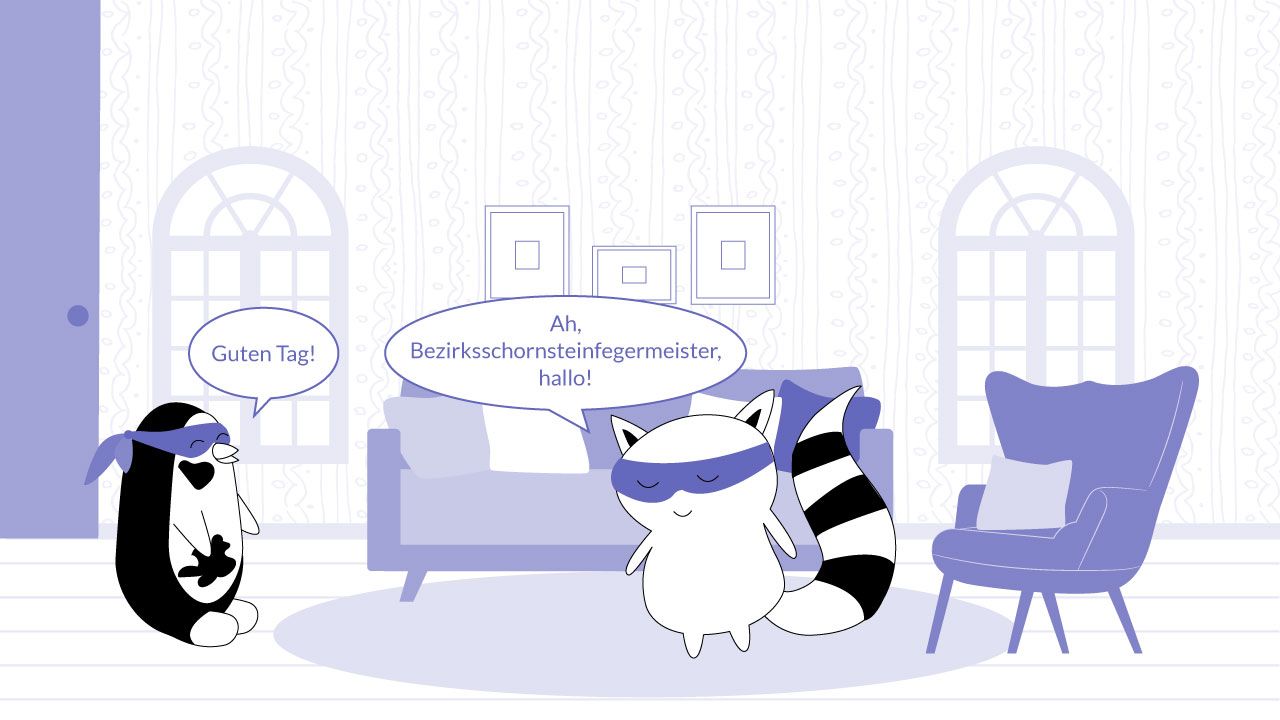
10. Rindfleischetikettierungsüberwachungsaufgabenübertragungsgesetz
Last but not least, we have this behemoth of a word: Rindfleischetikettierungsüberwachungsaufgabenübertragungsgesetz. With 63 letters, it’s the longest German word on this list, and the longest word in everyday use in Germany.
This word describes the law that regulates the labeling of beef. In other words, it’s the legal framework that governs how beef products must be labeled in order to be sold in Germany. Thanks to German love of abbreviations, you can also see it looking like that: ReÜAÜG.
Pronunciation: rint-flow-ice-het-ick-et-eer-oongs-ueber-voch-ungs-owf-gahb-en-ueber-trahg-oongs-gheh-tsets
Native
Translation
Rindfleischetikettierungsüberwachungsaufgabenübertragungsgesetz
Beef Labeling Regulation Act
Final Thoughts on German Words
To close the topic of German words, let us quote Mark Twain, who said that German words are “so long they have a perspective.”
Learning the longest German words can be a fun and challenging way to improve your language skills. While some of these words are difficult to pronounce, all of them have interesting meanings that might even be useful someday. So if you’re looking for a new challenge, why not try learning one of the longest German words on this list? Good luck!








